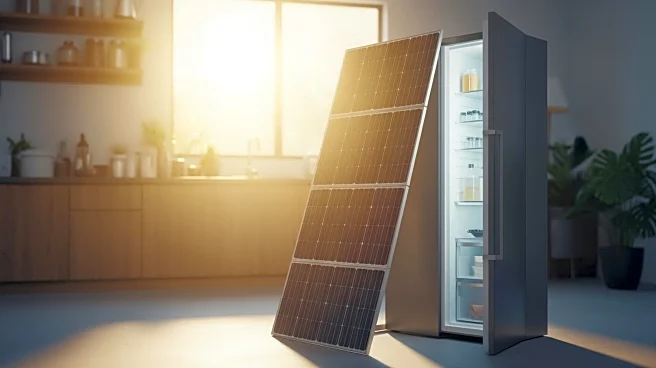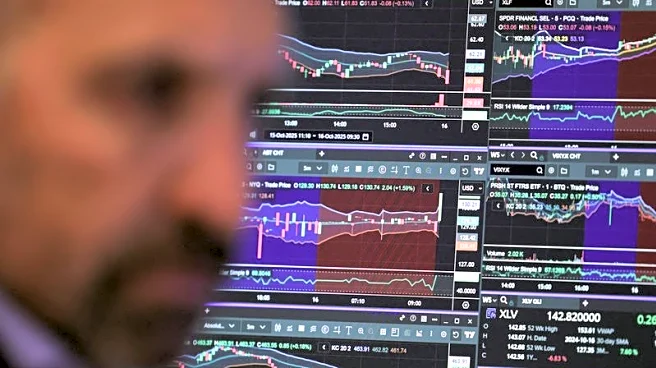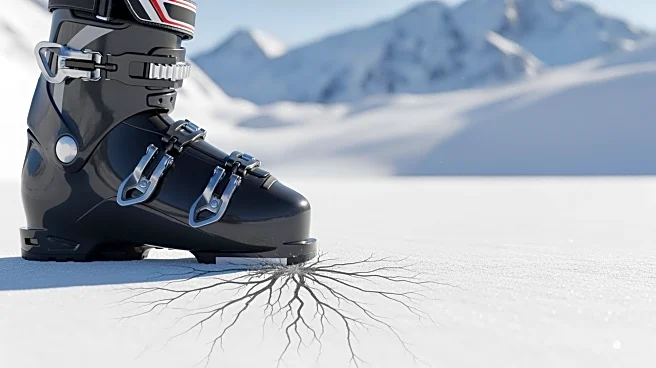What's Happening?
Noble Foods has introduced 40 Sunswap Endurance zero-emission transport refrigeration units across its national routes. The U.K.-based company, known for its Happy Eggs brand, is utilizing battery and solar-powered refrigeration technology to reduce CO2
emissions while ensuring temperature control during transport. The Endurance units primarily derive cooling power from integrated roof-mounted solar panels, supplemented by grid electricity during loading and unloading. After nine days of testing over rural routes, the units demonstrated 100% reliability, completing eight delivery cycles without operational disruptions. Noble Foods anticipates reducing fleet emissions by up to 3,439 tons over the units’ lifetime and achieving operational savings of approximately $1.5 million.
Why It's Important?
The deployment of solar-powered refrigeration units by Noble Foods represents a significant advancement in sustainable logistics practices. By reducing reliance on diesel-powered refrigeration, the company is contributing to lower transport emissions, aligning with global efforts to combat climate change. This initiative not only supports Noble Foods’ sustainability objectives but also enhances the green credentials of consumer-facing brands like Happy Eggs. The successful implementation of this technology could encourage other companies in the food and logistics sectors to adopt similar solutions, driving industry-wide progress towards environmental sustainability.
What's Next?
Noble Foods’ partnership with Sunswap marks a pivotal step in its journey towards achieving Net Zero commitments. As the company continues to evaluate the performance and scalability of solar-powered refrigeration, it may explore further integration of renewable energy solutions across its operations. The positive outcomes from this initiative could lead to expanded use of solar technology in other areas of the supply chain, potentially influencing industry standards and regulatory policies. Stakeholders, including competitors and environmental groups, may closely monitor Noble Foods’ progress and consider similar strategies to enhance sustainability.
Beyond the Headlines
The adoption of solar-powered refrigeration units by Noble Foods highlights the intersection of technology and sustainability in modern logistics. This development underscores the potential for innovative solutions to address environmental challenges while maintaining operational efficiency. As companies increasingly prioritize sustainability, the role of renewable energy in logistics could expand, prompting shifts in industry practices and consumer expectations. The long-term impact of such initiatives may extend beyond emissions reduction, influencing corporate strategies and regulatory frameworks.
















